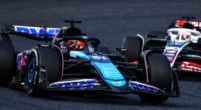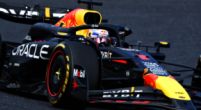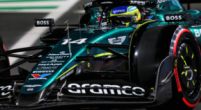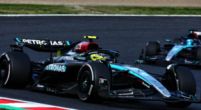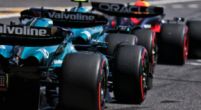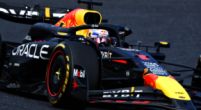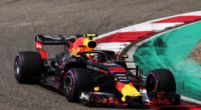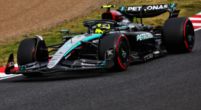F1 News
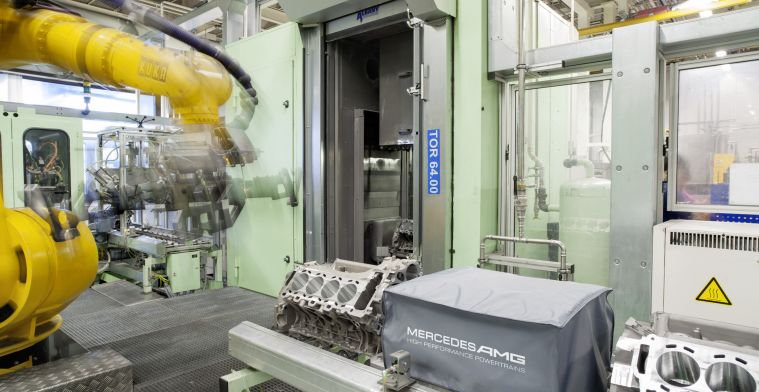
How can Ferrari announce a stronger engine despite engine freeze?
Ferrari expects to have a rocket of an engine by 2023 and Mercedes too expects to unlock more engine power next season. How will the manufacturers manage that when F1 has a so-called 'engine freeze' in effect from 2022 to 2025?
Why do Ferrari and Mercedes expect stronger engine?
When it became clear that the new engine regulations scheduled for 2022 were being pushed back to 2026, the F1 teams agreed that there would indeed be an engine freeze from 2022 onwards. Until 1 March 2022, engine manufacturers had a free hand to build the fastest and strongest engine possible (within the regulations). From then on, restrictions started and only the MGU-K, the Energy Store and the Control Electronis were allowed to be further developed until 1 September.
So since the final phase of the 2022 season, it has been over and done with power source further development. The reason for this freeze is to save costs. With the freeze, the 'engine budget' can now be completely put into the more durable 2026 engine. This keeps costs down for all developers and gives teams equal preparation time. That the hard engine freeze is now in place raises the question of why there are rumours that Ferrari has found an extra 30bhp and why Mercedes last month sounded positive about an improved engine for 2023.
In F1, there are exceptions
The FIA will have to be on top of the engine manufacturers to check that the powerplant is not being secretly tinkered with after all. In Formula 1, teams will always try everything to find the smallest millimetre of wiggle room in the regulations and make use of it. That is why, as a precaution, the FIA has apparently instituted a foolproof protocol regarding homologated engine parts.
Appendix 4 article 5 of the FIA F1 technical regulations lists exceptions of situations in which and parts on which tinkering is still allowed. Improving reliability, safety and saving costs are the only reasons why engine tinkering is still allowed. Minimal incidental modifications are also allowed. Those modifications include: wiring, modifications to the exhaust provided the dimensions remain unchanged, the position of the turbo parts, the position of the wastegates with peripherals and position of the pop-off valves.
So while the improvement of the current engines will drastically decrease over the next three F1 seasons, there are still some opportunities to improve the power unit. Indeed, it is quite conceivable that the moment an F1 team is eligible to legally swap a part (in an exception as described above), that this part will not only solve the existing problem, but the F1 team will also find something to actually upgrade engine performance as much as possible.
Chassis department gains responsibility
The engine freeze is a very drastic measure that put teams on edge in 2022. A poor non-competitive engine at the end of 2022 does not bode well for the coming years. The upside is that the current engine regulations are largely still the 2014 regulations, so all teams have had a very long time to tinker with the current generation of engines. The development steps made are therefore no longer as big, but even so, an engine power backlog due to the engine freeze can be particularly detrimental.
Mercedes already noticed this in 2022. The W13's lag in engine power combined with the porpoising problems got on Toto Wolff's nerves. In the end, Mercedes managed to overcome the biggest problems during 2022. The team boss saw engine freezing as one of the biggest challenges. The challenge was overcome when there was still some wiggle room in the engine regulations. In 2023, there is almost none, but Wolff does think his team can find a way to still get more engine power from the Mercedes engine.
Indeed, Mercedes says it is all about symbiosis between the different departments of the F1 team. In the coming years, the chassis department must ensure that the engine in its current state can deliver maximum power. Due to the engine freeze, it is pointless to improve the current engine with just the engine team, though by working together with Mike Elliott's chassis department, the engine's potential can be better exploited. Aligning the engine with the chassis can provide the extra engine power, according to Mercedes.
Large group of engine manufacturers in 2026
F1 got 'new' cars in 2022 and F1's engine regulations will be reset in 2026. To give all F1 teams a level playing field, all engine manufacturers have been in close consultation over the past few years to create strong and fair regulations. Broadly speaking, the manufacturers are in agreement; by 2026, engines must be a lot cheaper and more durable, and fuel must also become more sustainable. A first step towards this has already been taken in 2022 by raising the minimum percentage of sustainable fuel use to 10 per cent.
The Volkswagen Group felt it was so important for engines and fuel to become more sustainable that the group made its participation in F1 with Audi and Porsche entirely dependent on consultations on the 2026 engines. With Audi confirmed as Sauber's partner, another engine manufacturer is now in. Red Bull Powertrains is also still planning to participate as an engine manufacturer in F1 in 2026. Due to this interest from many teams, final talks on the engine regulations are now being held between Mercedes, Ferrari, Alpine/Renault, Honda, Audi and Red Bull Powertrains.
Although the 2026 engine regulations are ready to go, there are still some points on which the group cannot agree. The main issue is the capacity of Red Bull Powertrains to join. According to the FIA, Ferrari is still miles away from the other engine manufacturers when it comes to admitting Red Bull as an engine manufacturer. Red Bull would qualify as a new engine manufacturer giving them significant advantages in ability to invest and test time. Ferrari opposes, arguing that this would be unfair because Red Bull has had a very open partnership with engine manufacturer Honda for years and therefore cannot be seen as a completely new team.



